
Hamburger Sport-Verein e.V., commonly known as Hamburger SV or Hamburg, is a German sports club based in Hamburg, with its largest branch being its football department. Though the current HSV was founded in June 1919 from a merger of three earlier clubs, it traces its origins to 29 September 1887 when the first of the predecessors, SC Germania, was founded.
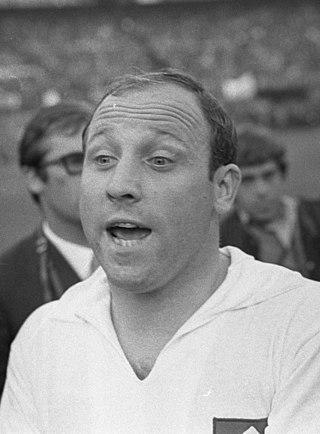
Uwe Seeler was a German footballer and football official. As a striker, he was a prolific scorer for Hamburger SV and also made 72 appearances for the West Germany national team. Widely regarded as one of the greatest players in German football history, Seeler was named one of FIFA's 100 greatest living players by Pelé in 2004. He was the first football player to be awarded the Commander's Cross of the Order of Merit of the Federal Republic of Germany.
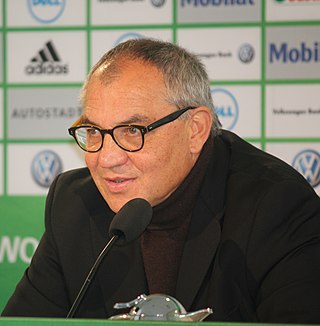
Wolfgang Felix Magath is a German football manager and former player.
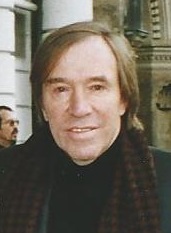
Günter Theodor Netzer is a German former professional football player, executive and pundit. He achieved great success in Germany with Borussia Mönchengladbach in the early 1970s and, after moving to Spain in 1973, with Real Madrid. A technically gifted playmaker, Netzer played as an attacking midfielder and is considered one of the greatest passers in the game's history. He was voted German Footballer of the Year twice, in 1972 and 1973.
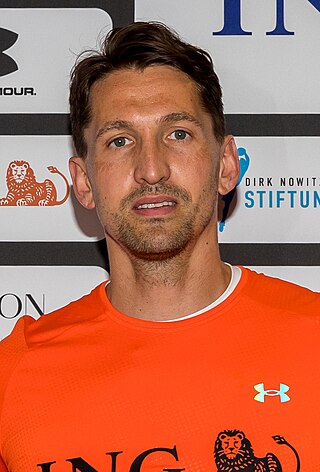
René Adler is a German former professional footballer who played as a goalkeeper.

The 2. Bundesliga is the second division of professional football in Germany. It was implemented 11 years after the founding of the Fußball-Bundesliga as the new second division for professional football. The 2. Bundesliga is ranked below the Bundesliga and above the 3. Liga in the German football league system. All of the 2. Bundesliga clubs take part in the DFB-Pokal, the annual German Cup competition. A total of 127 clubs have competed in the 2. Bundesliga since its foundation.
VfR Wormatia 08 Worms is a German association football club that plays in Worms, Rhineland-Palatinate. The club and its historical predecessors were regular participants in regional first-division football competition until the formation of the national top-flight Bundesliga in 1963.

Hans Tilkowski was a German footballer who played as a goalkeeper. He played for West Germany, and was a member of the team that lost the 1966 World Cup final to England.
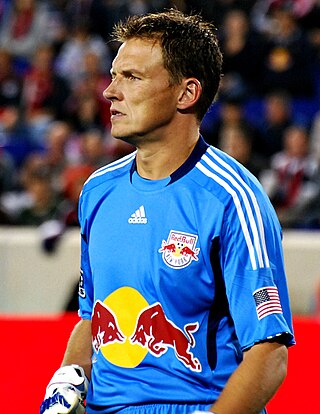
Frank Rost is a German former professional footballer who played as a goalkeeper.

Wolfgang Rolff is a German football manager and former player.

Holger Hieronymus is a German former professional footballer who played as a defender.
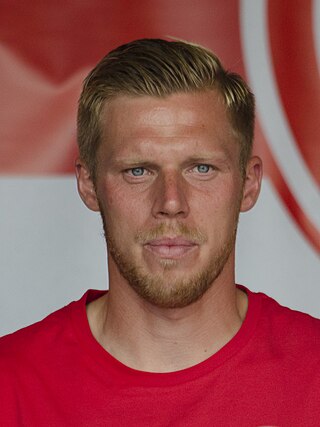
Rouwen Hennings is a German professional footballer who plays as a forward for SV Sandhausen.

Willi Reimann is a German retired football player and manager.
The history of German football is one that has seen many changes. Football was a popular game from early on, and the German sports landscape was dotted with hundreds of local sides. Local sports associations or clubs are a longtime feature of the culture of German athletics. Each club would participate in, and field teams from, one or more sports, depending on local interest and resources.

The Regionalliga Südwest was the second-highest level of the German football league system in the southwest of West Germany from 1963 until the formation of the 2. Bundesliga in 1974. It covered the states of Saarland and Rheinland-Pfalz.

Hamburger SV II are the reserve team of German association football club Hamburger SV. Until 2005 the team played as Hamburger SV Amateure.
Horst Buhtz was a German football manager and former football player who played as a midfielder.
Jürgen Stars is a German former professional footballer who played as a goalkeeper in the Bundesliga and the North American Soccer League.
The 1930–31 Eintracht Frankfurt season was the 31st season in the club's football history. In 1930–31 the club played in the Bezirksliga Main-Hessen, then one of many top tiers of German football. It was the club's 4th season in the Bezirksliga Main-Hessen.
The 1982–83 Hamburger SV season was the 36th season in the club's history and the 20th consecutive season playing in the Bundesliga.













